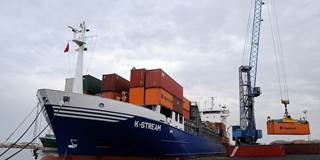The Transatlantic Trade and Investment Partnership, currently the subject of intense negotiations between the EU and the US, is making big waves. In order to ensure that the TTIP benefits consumers on both sides of the Atlantic, those negotiating it must recognize and avoid some key traps.
MUNICH − The Transatlantic Trade and Investment Partnership, currently the subject of intense negotiations between the European Union and the United States, is making big waves. Indeed, given the scale of the two economies, which together account for more than 50% of world GDP and one-third of global trade flows, the stakes are high. In order to ensure that the TTIP benefits consumers on both sides of the Atlantic, those negotiating it must recognize and avoid several key traps – some more obvious than others.
Bilateral trade agreements have been gaining traction lately. For example, the EU and Canada recently concluded a Comprehensive Economic and Trade Agreement, which is likely to become the basis for the TTIP.
This is not surprising, given the repeated failure of attempts to reach a global agreement via the World Trade Organization. The Doha Round of WTO talks was a flop, and the agreement reached in Bali last year, despite being sold as a success, does little more than accelerate the collection of customs duties.

MUNICH − The Transatlantic Trade and Investment Partnership, currently the subject of intense negotiations between the European Union and the United States, is making big waves. Indeed, given the scale of the two economies, which together account for more than 50% of world GDP and one-third of global trade flows, the stakes are high. In order to ensure that the TTIP benefits consumers on both sides of the Atlantic, those negotiating it must recognize and avoid several key traps – some more obvious than others.
Bilateral trade agreements have been gaining traction lately. For example, the EU and Canada recently concluded a Comprehensive Economic and Trade Agreement, which is likely to become the basis for the TTIP.
This is not surprising, given the repeated failure of attempts to reach a global agreement via the World Trade Organization. The Doha Round of WTO talks was a flop, and the agreement reached in Bali last year, despite being sold as a success, does little more than accelerate the collection of customs duties.